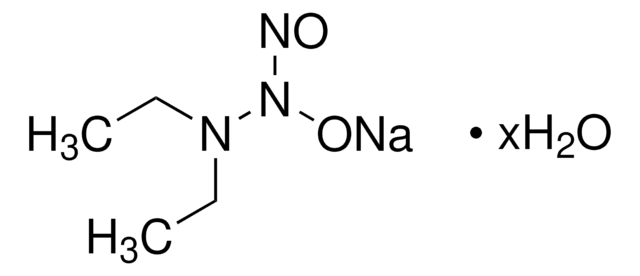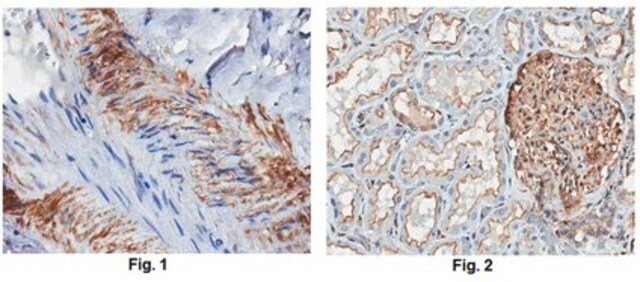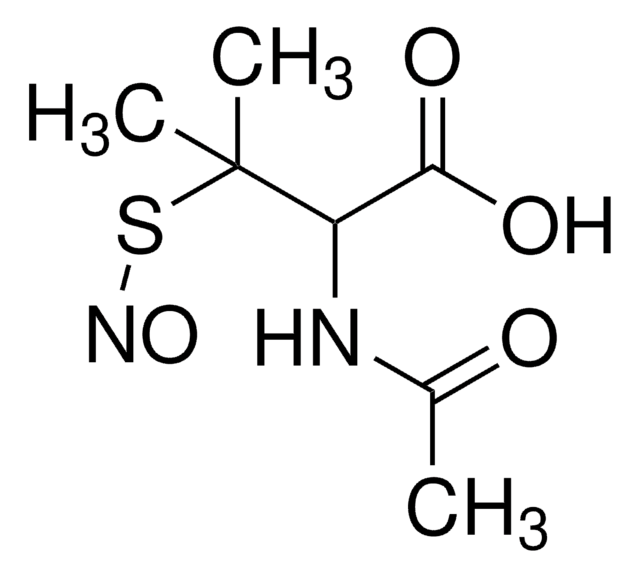A5581
3,3-Bis(aminoethyl)-1-hydroxy-2-oxo-1-triazene
≥95%
Synonym(s):
2,2′-(Hydroxynitrosohydrazino)bis-ethanamine, DETA NONOate, NOC-18
About This Item
Recommended Products
Assay
≥95%
form
powder
solubility
0.1 M NaOH: 10 mg/mL, clear, colorless
storage temp.
−20°C
SMILES string
NCCN(CCN)\[N+]([O-])=N/O
InChI
1S/C4H13N5O2/c5-1-3-8(4-2-6)9(11)7-10/h10H,1-6H2/b9-7+
InChI key
YNRCBOXEDICOIX-VQHVLOKHSA-N
Looking for similar products? Visit Product Comparison Guide
Application
Biochem/physiol Actions
Signal Word
Danger
Hazard Statements
Precautionary Statements
Hazard Classifications
Self-react. C
Storage Class Code
5.2 - Organic peroxides and self-reacting hazardous materials
WGK
WGK 3
Personal Protective Equipment
Choose from one of the most recent versions:
Already Own This Product?
Find documentation for the products that you have recently purchased in the Document Library.
Articles
Nitric oxide (NO) as a signal transporter in neurons, endothelial cells and in the immune system.
Our team of scientists has experience in all areas of research including Life Science, Material Science, Chemical Synthesis, Chromatography, Analytical and many others.
Contact Technical Service









